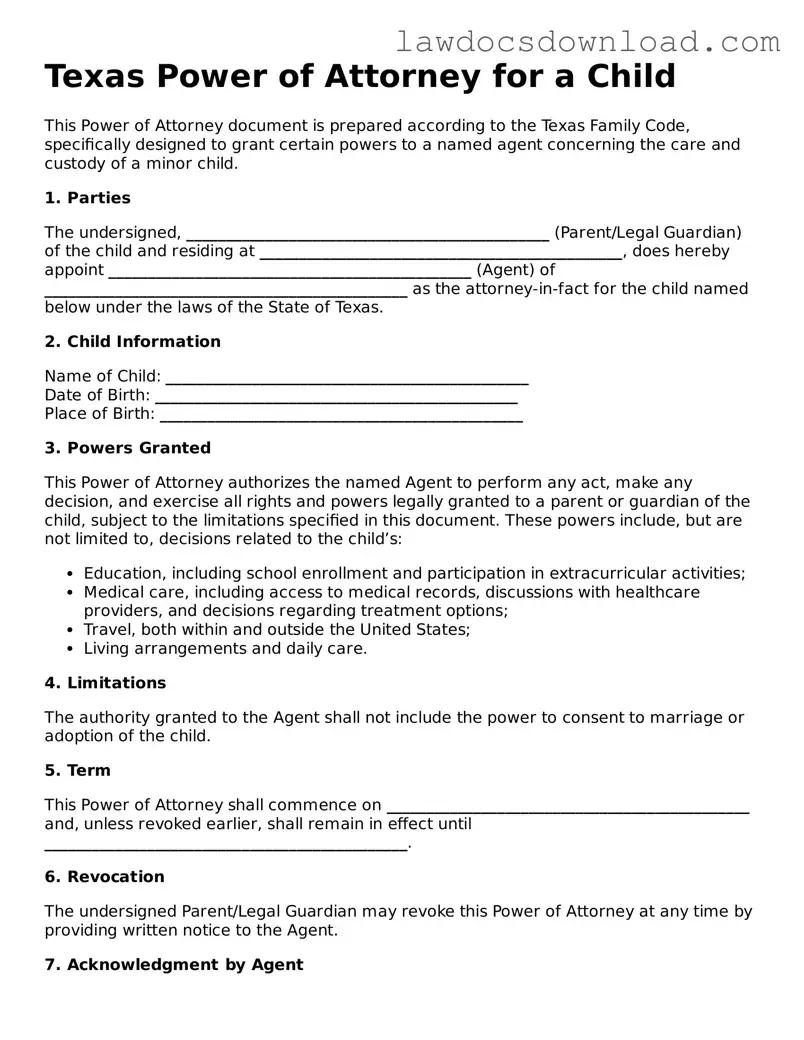Texas Power of Attorney for a Child
This Power of Attorney document is prepared according to the Texas Family Code, specifically designed to grant certain powers to a named agent concerning the care and custody of a minor child.
1. Parties
The undersigned, ______________________________________________ (Parent/Legal Guardian) of the child and residing at ______________________________________________, does hereby appoint ______________________________________________ (Agent) of ______________________________________________ as the attorney-in-fact for the child named below under the laws of the State of Texas.
2. Child Information
Name of Child: ______________________________________________
Date of Birth: ______________________________________________
Place of Birth: ______________________________________________
3. Powers Granted
This Power of Attorney authorizes the named Agent to perform any act, make any decision, and exercise all rights and powers legally granted to a parent or guardian of the child, subject to the limitations specified in this document. These powers include, but are not limited to, decisions related to the child’s:
- Education, including school enrollment and participation in extracurricular activities;
- Medical care, including access to medical records, discussions with healthcare providers, and decisions regarding treatment options;
- Travel, both within and outside the United States;
- Living arrangements and daily care.
4. Limitations
The authority granted to the Agent shall not include the power to consent to marriage or adoption of the child.
5. Term
This Power of Attorney shall commence on ______________________________________________ and, unless revoked earlier, shall remain in effect until ______________________________________________.
6. Revocation
The undersigned Parent/Legal Guardian may revoke this Power of Attorney at any time by providing written notice to the Agent.
7. Acknowledgment by Agent
I, ______________________________________________ (Agent), acknowledge that I have been appointed as the attorney-in-fact for the child named herein. I accept this appointment and agree to act in the child’s best interest according to the powers granted to me, limited by the terms defined herein.
8. Jurisdiction
This document shall be governed by the laws of the State of Texas.
9. Signatures
Parent/Legal Guardian:_____________________________________ Date:_____________
Agent:___________________________________________________ Date:_____________
Witness (Optional):_______________________________________ Date:_____________
10. Notarization (If required)
This section to be completed by a notary public:
On this day, ______________________________________________, before me, (name of the notary), personally appeared the above-signed parties, who acknowledged that they executed this document as their free act and deed.
Notary Public’s Signature: __________________________________
My Commission Expires: ____________

